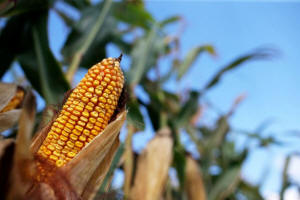|
U.S. farmers plow ahead with plantings as
China trade war fears ebb
 Send a link to a friend
Send a link to a friend
 [May 22, 2018]
By Tom Polansek [May 22, 2018]
By Tom Polansek
CHICAGO (Reuters) - U.S. farmers said they
would push ahead with plantings planned before U.S.-China trade tensions
eased and, now that the two countries have resumed talks, take a
wait-and-see approach to President Donald Trump's promises for more
sales to China.
Over the weekend, the world's two largest economies pledged to keep
talking about how China could import more energy and agricultural
commodities from the United States to narrow a $335 billion annual U.S.
goods and services trade deficit with Beijing.
The agreement came after Trump threatened to impose up to $150 billion
in punitive tariffs to lower the trade deficit and combat what he calls
Beijing's misappropriation of U.S. technology. China threatened equal
retaliation, including tariffs on some of its largest U.S. imports,
including soybeans and other agricultural commodities.
The reluctance of some farmers to adjust their planting plans in light
of the latest negotiations shows they are uncertain about the outcome.
For many, it is also simply too late to change their minds after buying
seed, fertilizer and farm chemicals.

"We're so far along in our planting season that we can't change
anything," said John Brink, who grows corn, soy and wheat in Richview,
Illinois.
As of Sunday, farmers had planted 81 percent of the U.S. corn crop, 56
percent of the nation's soybeans and 36 percent of sorghum, a grain used
for livestock feed, according to U.S. Department of Agriculture data
issued on Monday.
"Until we see some hard evidence that some major concessions have been
made or whatnot, we're kind of taking a wait-and-see approach," Brink
said. "We just kind of understand this is politics in play."
The United States appeared to have won promises of more imports by
China, although there were few specifics on Monday.
Farmers said they wanted more details.
"The news is encouraging, but a lot of us on the farm would like to hear
some contracted sales that have been placed," said Monte Peterson, a
soybean farmer in Valley City, North Dakota.
Kirby Hettver, who was wrapping up soybean planting on his farm in
DeGraff, Minnesota, said he wanted to see a long-term deal in place
before he makes any changes on his farm in response to trade policies.
"I view it as part of the process," Hettver, president of the Minnesota
Corn Growers Association, said of the latest stage of the U.S.-China
talks.
"Our plan for this year was already in place. We had seed bought,
fertilizer bought."
[to top of second column]
|

Corn is seen in a field in Morocco, Indiana, U.S. September 6, 2016.
REUTERS/Jim Young/File Photo

HOPE FOR REDUCED TARIFFS
The U.S. Grains Council, which promotes U.S. exports, would like
China to speed up import approvals of U.S. biotech crops such as
corn and reduce tariffs on shipments of U.S. ethanol and an ethanol
byproduct known as distillers' dried grains, Chief Executive Tom
Sleight said.
On Friday, China dropped an anti-dumping investigation into U.S.
sorghum that had raised costs for buyers of the grain.
As a result, the Grains Council may dial back plans made during
China's investigation to find more buyers in other countries for
U.S. sorghum, Sleight said.
"We may be not quite so aggressive now because China could come back
as a huge buyer," he said. "You don't want to build a big market and
then not have something to deliver."
The United States shipped 4.76 million tonnes of sorghum to China in
2017, worth around $1.1 billion and making up the bulk of China's
roughly 5 million tonnes of imports of the grain, according to
Chinese customs data.
Some U.S. farmers scrapped plans to plant sorghum this spring,
opting for corn instead, after China's probe halted U.S. sorghum
imports.
But Kent Winter, who farms outside Wichita, Kansas, and is president
of the Kansas Grain Sorghum Producers Association, was planning to
double his sorghum plantings when the latest trade talks were
announced. He will plant the crop across about 400 acres in about
three weeks, hoping that China resumes U.S. imports soon after
ending its anti-dumping probe.

"It gives us more confidence going forward that we can get this
foreign market opened back up," Winter said.
(Reporting by Tom Polansek; Editing by Richard Chang)
[© 2018 Thomson Reuters. All rights
reserved.]
Copyright 2018 Reuters. All rights reserved. This material may not be published,
broadcast, rewritten or redistributed.
Thompson Reuters is solely responsible for this content. |